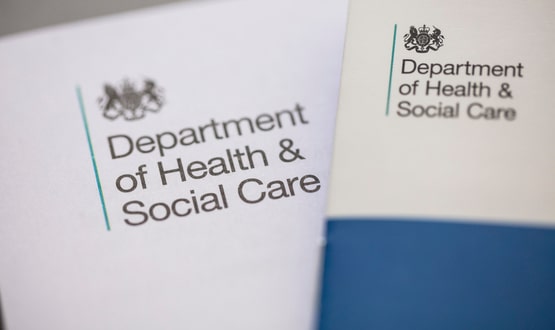Thirteen trusts first in line for £78m e-prescribing fund
- 3 December 2018

Thirteen trusts are to receive a share of £78m funding to support the expansion of electronic prescribing and medicine administration in the NHS.
The money will be split between a mixture of acute, mental health and community trusts spread across the north and south of England.
Funding has been allocated to organisations deemed to have not made progress with implementing electronic prescribing, as outlined by previous health secretary, Jeremy Hunt, in February. It will be distributed over the next three years until 2021, with £16m funding available for 2018/19.
The first regional allocations are:
- Bolton NHS Foundation Trust – £1,020,000
- The Rotherham NHS Foundation Trust – £750,000
- Mid Yorkshire Hospitals NHS Trust – £1,600,000
- Humber NHS Foundation Trust – £300,000
- Northern Lincolnshire And Goole NHS Foundation Trust – £940,000
- Kettering General Hospital NHS Foundation Trust – £820,000
- University Hospitals of North Midlands NHS Trust – £2,190,000
- Barts Health NHS Trust – £1,700,000
- East London NHS Foundation Trust – £740,000
- East Kent Hospitals University NHS Foundation Trust – £1,450,000
- Frimley Health NHS Foundation Trust – £1,170,000
- Buckinghamshire Healthcare NHS Trust – £1,620,000
- East Sussex Healthcare NHS Trust – £1,700,000
Additional trusts have been invited to bid for funding before the end of January 2019.
Health minister, Stephen Hammond, said: “As part of the long-term plan for the NHS, we not only want to harness technology to make it one of the most advanced healthcare systems in the world, but crucially to improve patient care.
“The funding provided for these trusts will help to drive these changes to the patient experience, but will also aid our hard-working and dedicated staff.
“The introduction of electronic prescribing is not only known to reduce medication errors, but also frees up time for staff by moving away from archaic paper-based systems.”
Electronic prescribing – or e-prescribing – is regarded as crucial for improving patient safety by reducing medication errors associated with hand-written notes.
Speaking in February 2018, Jeremy Hunt claimed that between four and five people died every day as a result of errors with drug prescriptions
The Department of health and Social Care suggests that electronic prescribing and medicine administration (ePMA) systems will cut potentially deadly medication errors by up to 50%, as well as help contribute to more comprehensive electronic patient record systems and reduce work duplication associated with hand-written processes.
Another anticipated boon of ePMA is the generation of information that can contribute to NHS data sets, from which research and population health insights can be drawn.
Andrew Davies, Director of Hospital Pharmacy, NHS Improvement said: “There is evidence that electronic prescribing and medicines administration systems will improve safety for patients, reducing the risk of harm and ensuring high quality efficient patient care which is as safe as possible.
“I’m delighted so many trusts have submitted successful bids to accelerate the introduction of these systems to provide safer, better quality patient care.”
In August, NHS Digital announced that every eligible GP practice in London had introduced the electronic prescription service.





7 Comments
78 million pounds would be better spent designing one system that can meet the core needs of the majority of the NHS. This single system could be cloud based, so staff could access wherever they need to eg. in the office (patient bedside), at home, in a different trust, etc. This could be connected to the wider community to join up acute, primary, mental & community care. The DHSC & NHS England need to take the lead from companies in the private sector who only use one/a handful of systems to carry out their business operations …
Will the funding be conditional on spending it on solutions that adopt specific standards eg. OpenEhr, open source, GS1, Snomed, etc??? It should be ….!!!
Widely used global standards yes – GS1, SNOMED CT adding FHIR of course. OpenEHR and Open Source a different debate.
Also concerning is the continued focus on just ePMA – which obviously has huge benefits – but if installed outside of the core system – risks appear. Which system holds allergies for example? Allergies should be not be interfaced to/from a clinical application. I hope all the funding is supporting a wider project rather than just ePMA on its own.
Very much agree that epma should not be implemented in isolation. The biggest issue I can see of such implementations is all they do is digitise the paper drugs chart. While this does help to reduce errors and increase patient safety there are missed opportunities to review and redesign inefficient processes. There is a lot more that can be done to make the end to end pharmacy/eprescribing tasks more efficient and safer. There is little competition in the eprescribing market (main ones JAC and EMIS Ascribe) and they know this which limits innovation and locks in trusts choosing these systems. Clinicans want to be involved from the start and don’t like to be IT done to them, which both of these systems seem to do… Of course they are not alone … This is where open source and openehr differs and would be a game changer if taken forward at pace within UK healthcare.
I suppose some of the trusts who done well have become GDE and obtained additional funding.
Why is it that the South get the most out of this and only 1in the North, this should be equally done across England, instead of the south of England
“Funding has been allocated to organisations deemed to have not made progress” … So are CIOs more towards the “do knowt, easy life” end of the spectrum thinking.. “ah ah, so if I sit on my hands and do nothing I’ll eventually get funding”. Others at the “dynamic, can do” end of the spectrum may be thinking “We did EP ourselves with our own funding …that was a strategic error because that lot are getting bailed out”. So will they adjust their behavior going forward accordingly? Is that a perverse incentive? Rewarding laggards. Or is it just a reflection of reality – a smart pragmatic move that just recognises money is seriously short as always and the funding gap needs central funding to fill it?
Comments are closed.